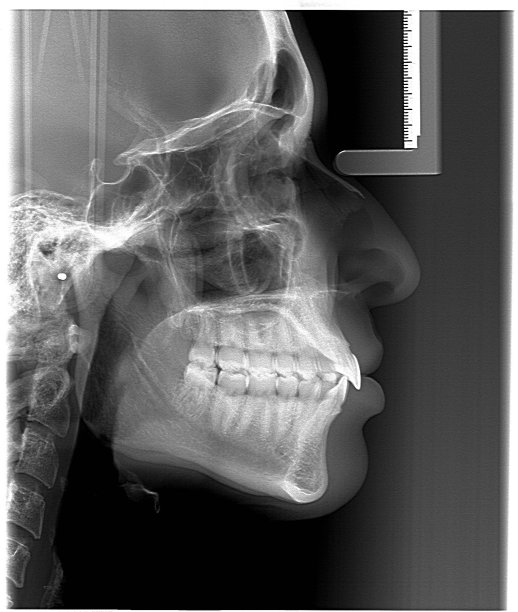Summary: Dental implant treatment offers a transformative solution for individuals seeking to restore their smiles and regain confidence after tooth loss. This comprehensive guide explores the multiple benefits of dental implants, including improved functionality, enhanced aesthetics, and long-term durability. Additionally, it delves into the step-by-step process of receiving dental implants, discussing preliminary assessments, surgical procedures, and post-operative care. By understanding the advantages and intricacies of dental implant treatment, prospective patients can make informed decisions about their oral health and pursue a brighter, more confident smile.
1. Benefits of Dental Implants Explained
Dental implants provide a pseudo-root that allows for the attachment of artificial teeth, making them an optimal choice for replacing lost or damaged teeth. One of the most significant benefits is their ability to mimic the function of natural teeth, offering stability and support while chewing and speaking. Unlike dentures that can shift and cause discomfort, implants ensure that individuals can enjoy their favorite foods without restrictions.
Another benefit is the improvement in aesthetics that implants offer. They are designed to look and feel like real teeth, which can greatly enhance one’s smile and overall appearance. This boost in self-esteem often translates to increased confidence in social situations and helps individuals feel more at ease when interacting with others.
Lastly, dental implants contribute to long-term oral health. They stimulate the jawbone similarly to natural tooth roots, preventing bone loss that typically occurs after tooth extraction. This preservation of bone structure not only maintains facial aesthetics but also supports surrounding teeth, reducing the risk of further dental issues in the future.
2. Understanding the Dental Implant Process
Undergoing dental implant treatment involves a series of well-defined steps. The initial phase is a comprehensive evaluation by a dental professional, which includes imaging tests and a thorough dental history review. This assessment helps determine the patients candidacy for implants and identifies any specific needs or concerns that should be addressed throughout the process.
Once approved, patients enter the surgical phase, where the titanium implants are surgically placed within the jawbone. This out-patient procedure is commonly performed under local anesthesia. Following implant placement, there is a healing period that allows the jawbone to integrate with the implants, a process called osseointegration; this can take several months to complete.
After healing, the dentist will attach custom-designed crowns to the implants, completing the process. These crowns are tailored to match the patients natural teeth in shape, color, and size, ensuring a seamless and natural-looking smile.
3. Post-Operative Care for Implants
Post-operative care is essential for ensuring the long-term success of dental implants. After the procedure, patients may experience some discomfort and swelling, which is normal. Dentists often recommend using over-the-counter pain relievers and applying ice packs to manage any discomfort during the recovery period.
Proper oral hygiene is crucial after receiving dental implants. Patients should brush and floss regularly while avoiding hard and sticky foods that can damage new implants. Regular dental check-ups are also vital, as professional cleanings and examinations help maintain the health of both the implants and surrounding teeth.
It is essential for patients to be cautious during the initial healing phase, which can last several weeks. Adhering to the dentists instructions and monitoring for any unusual symptoms will help ensure a smooth recovery and long-lasting success of the implants.
4. Common Concerns and FAQs About Implants
Many prospective patients have questions regarding the safety and longevity of dental implants. Generally, dental implants are considered safe for most individuals, with a high success rate. However, specific factors such as age, overall health, and smoking can impact the success of the procedure. It is advisable for individuals to discuss their medical history and any concerns with their dentist beforehand.
Another common concern is the cost of dental implants. While they may be more expensive upfront compared to other tooth replacement options, their durability and low maintenance requirements often make them a cost-effective solution in the long run. Numerous dental insurance plans may cover a portion of the costs, and financing options can also be available.
Lastly, patients often inquire about the time commitment required for the entire process. While dental implant treatment can span several months—including healing times—the results last for many years, often providing a lifetime of benefits and functionality. This long-term investment in oral health significantly outweighs the initial time put in.
Summary:
In summary, dental implant treatment not only restores smiles but also enhances self-esteem and oral functionality. The gradual process, from evaluation through to post-operative care, underscores the importance of making informed decisions about ones dental health. Understanding the benefits, procedures, and potential concerns can guide individuals towards achieving their desired outcomes.
This article is compiled by Vickong Dental and the content is for reference only.
Vickong Dental
Vickong Dental is a large medical group established in Hong Kong in 2008 by professors from well-known medical universities in Guangdong and Hong Kong, as well as medical doctors from key national '985' universities (including Master's supervisors and senior professors). The chain of branches brings together expert dentists with PhDs and Master's degrees from Hong Kong and Mainland China, committed to providing high-quality dental treatment.
"Vickong Dental Practices the University Motto of 'Healing and Serving Society,' with a Stable Operation for Sixteen Years. It Has Been honored with Hong Kong Enterprise Leaders's Choice,' and is a Global Trusted Implant Center for the Nobel Implant System. Recommended by Hong Kong Metro Broadcast and Guangdong Television, it Serves Customers from Over Thirty Countries and Regions, Gaining the Trust and Favor of Citizens from the Guangdong-Hong Kong-Macau Greater Bay Area and Surrounding Cities.

Thousands of customers' unanimous praise
The most recognized and highly recommended dental service by customers in the Guangdong-Hong Kong-Macau Greater Bay Area
We Ensure You Receive Detailed Care and Attention Here
Hong Kong standards, Shenzhen prices, Your Trusted English-speaking dentists

Vickong Dental Medical-Grade Instrument Disinfection Process
Vickong Dental Medical-Grade Instrument Disinfection Process

Vickong Dental Chain: A Warm and Comfortable Environment for Treatment






Appointment Hours

Q&A
Why choose Vickong Dental?
Vickong Dental practices the university motto 「Medicine to Benefit Society」, with each branch bringing together highly qualified dentists with doctoral and master’s degrees from Hong Kong and the Mainland, and has maintained seventeen years of steady operation。Recipient of 「2024 Hong Kong Enterprise Leaders Brand」, 「2025 Hong Kong Enterprise Leaders Brand」, a Nobel Biocare Global Trusted Implant Center, and a brand recommended by Metro Radio Hong Kong and Guangdong TV。
To date, we have served customers from more than thirty countries and regions,earning exceptionally high word-of-mouth recognition and trusted recommendations from residents across the Guangdong-Hong Kong-Macao Greater Bay Area and surrounding cities
We have eight major branches in Zhuhai、Shenzhen,and a consultation and service assurance center in Hong Kong,so you can book a free consultation at any time for any questions,which is very reassuring.
If I do not accept the quotation after the CT scan, will I be charged??
No! As long as the actual treatment has not started, you will not be charged any fees.
Will there be any additional charges during the treatment process?
No, there won’t be any additional charges. Before treatment begins, we will clearly explain the treatment plan and its corresponding fees. Only after the patient agrees and signs the consent form will we proceed with the dental service.
Can I pay in Hong Kong dollars?
Yes. Vickong Dental accepts payment in Hong Kong dollars. The amount will be converted based on the exchange rate of the day, and the applicable rate will be clearly communicated to you in advance.
Can I reschedule my appointment at any time?
Yes. Please contact us via **WeChat** or **WhatsApp** as early as possible, providing your original appointment time and details, along with your preferred new date and time slot for rescheduling.













